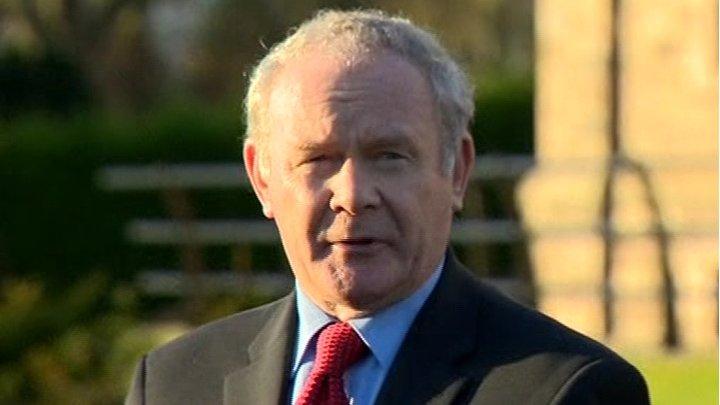NI may not see McGuinness' like again, says Foster
- Published

History will have the 'final say' on Martin McGuinness and his legacy, said Arlene Foster
Northern Ireland may never see a political figure like Martin McGuinness again, unionist leader Arlene Foster has said.
She paid tribute to the former deputy first minister at a special Assembly meeting to mark his death, aged 66.
Leaders from across the political spectrum gave their thoughts on the former IRA commander turned peacemaker.
But Traditional Unionist Voice (TUV) leader Jim Allister said "his hands drip with the blood of the innocent".
Martin McGuinness, from paramilitary to politician
MLAs gathered at Stormont to remember the Sinn Féin figurehead, with the Assembly recalled to allow them to have their say on his impact on politics in Northern Ireland.
Mr McGuinness died in a hospital in Londonderry with his family by his side on Tuesday after suffering with a rare heart condition. His funeral will take place in his native Derry on Thursday.
Prime Minister Theresa May offered her condolences in the House of Commons.
She would not "condone or justify" the part he played in Northern Ireland's Troubles, but praised his "indispensible" role in bringing the "republican movement away from violence".


Analysis: Mark Devenport, BBC News NI political editor
Negotiations to restore Stormont's power-sharing executive have a 27 March deadline.
It is undoubtedly the case that Martin McGuinness's funeral will mean that the time the Northern Ireland Office thought it had to continue talks before the deadline will be taken up with other matters.
What impact will this have on the chances of agreement? They seemed pretty slim prior to Mr McGuinness's death.
They still seem fairly slim, although maybe the death will inject a new mood into some of the discussions.

Speaking at Stormont, Michelle O'Neill, Mr McGuinness' successor as Sinn Féin's leader in Northern Ireland, said he had been a "political visionary", a "gifted strategist and orator", but above all "our dear and valued friend".
"His leadership and the example he set will continue to inspire those of us who are determined to build a better future for all the generations to come," she said.
She added that she would "rededicate our party to completing his life's work and to living through his legacy".

Sinn Féin's Michelle O'Neill said her predecessor had been a 'dear and valued friend'
Democratic Unionist Party (DUP) leader Mrs Foster shared almost a year heading the Northern Ireland Executive with Mr McGuinness until its collapse in January.
She said his legacy was "complex and challenging" and his death had raised memories of the Troubles among the families of victims of IRA violence.
Many victims "are feeling very hurt", she added, but she also acknowledged that many nationalists and republicans were mourning "a leader, friend or mentor".

The DUP Lord Mayor of Belfast Brian Kingston signed a book of condolence at City Hall
History would have the "final say" on Mr McGuinness, she added.
"It is precisely because of his past, because of his involvement with the IRA in the '70s and '80s, because of his influence within those circles, that he was able to play the role he played in bringing the republican movement towards using peaceful and democratic means," she said.
"Because of all of that, I doubt we will ever see his like again."

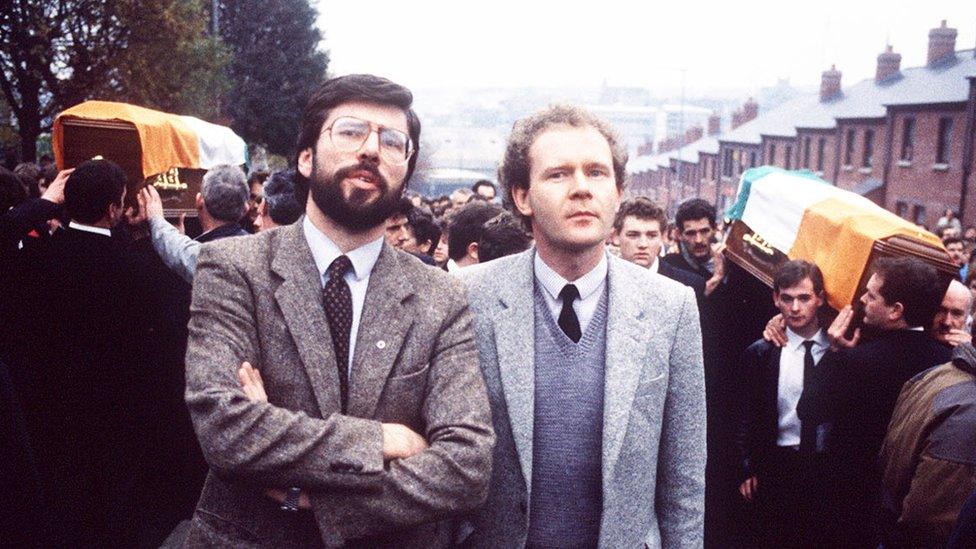
Analysis: Vincent Kearney, BBC News NI home affairs correspondent
No-one knows how many people Martin McGuinness killed, directly or indirectly.
As a senior commander in the Provisional IRA for many years, there is no doubt there was blood on his hands.
Security sources say he went on to become chief of staff of the organisation from the early 1980s, right through until the end of the IRA's campaign of violence.
Nothing happened in Derry without him knowing.

Social Democratic and Labour Party (SDLP) leader Colum Eastwood said Mr McGuinness' "journey" began in violence but ended "grounded in the principles of peace and partnership".
He praised his fellow Derryman for his "generosity of spirit", but said victims of the Troubles should also be remembered.
Mr Eastwood told MLAs their job now was to "do what what Martin McGuinness would've wanted us to do" in breaking the political deadlock at Stormont.

Martin McGuinness' body was returned to his Bogside home on Tuesday ahead of his funeral
Mike Nesbitt, the outgoing Ulster Unionist leader, said Mr McGuinness was "clearly a man of his word" and one of "political integrity".
"If unionism has anything to learn from Martin McGuinness it is the importance of outreach - he reached outside his comfort zone on many occasions but unionism didn't always reciprocate."
Alliance Party leader Naomi Long told the Assembly she did not believe there would have been peace in Northern Ireland had it not been for people like Martin McGuinness.

Hundreds of people gathered in west Belfast on Tuesday night to remember the republican figurehead
Vigils have been held in Belfast, Derry and Dublin for the lifelong republican, while books of condolence have been opened in a number of places, including at Belfast City Hall.
Mr McGuinness grew up in Derry's Bogside and at 21 years old he was he was second-in-command of the IRA in the city.
He worked at the heart of Northern Ireland's power-sharing government after the Good Friday peace agreement in 1998.

Martin McGuinness' life took him from commanding the IRA to shaking hands with the Queen
He became deputy first minister in 2007, leading the executive alongside first minister Ian Paisley - the two men had been diametrically opposed to one another in years gone by.
Among the seismic moments during his time in government was a famous handshake with the Queen in 2012 and a toast to Her Majesty at Windsor Castle two years later.
A visibly ailing Mr McGuinness stood down from his post in January in a protest against the DUP's handling of an financial scandal, in a move that triggered a snap election.
Now, without his influence, the region's political parties are faced with the job of saving Stormont amid the biggest crisis power-sharing has faced in a decade.
- Published21 March 2017
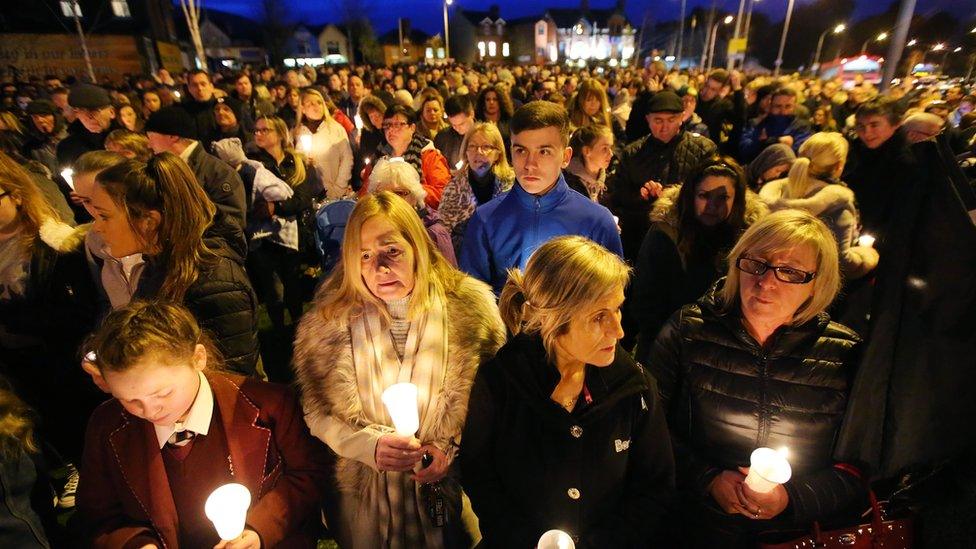
- Published21 March 2017
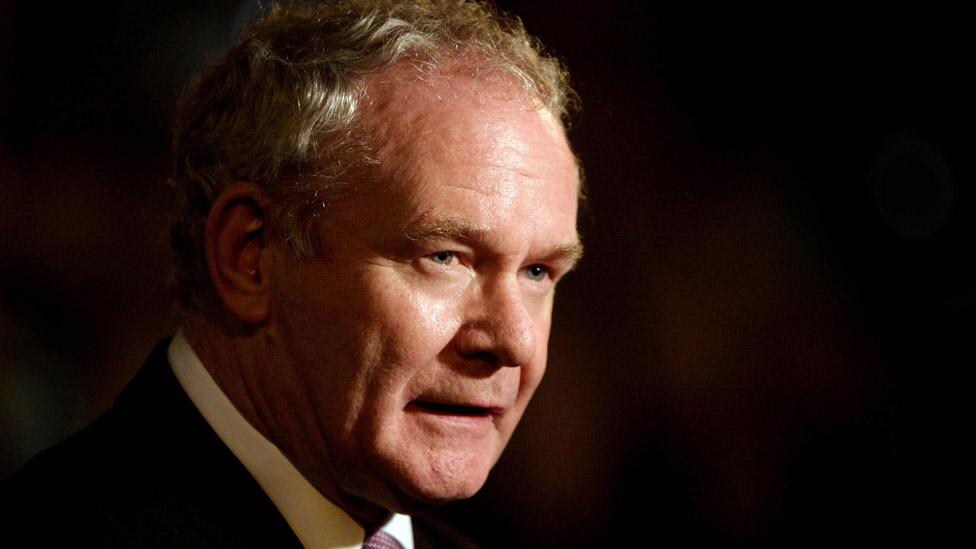
- Published21 March 2017

- Published21 March 2017
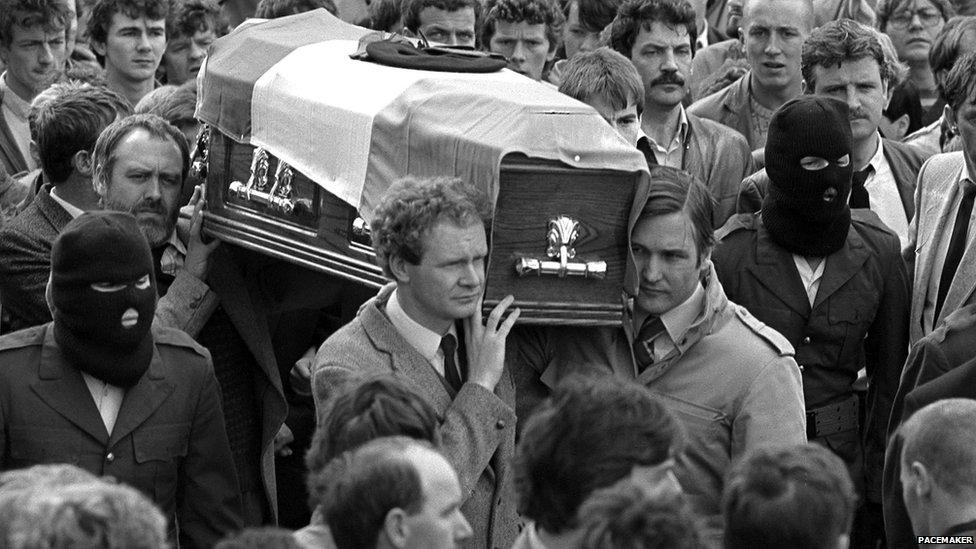
- Published21 March 2017
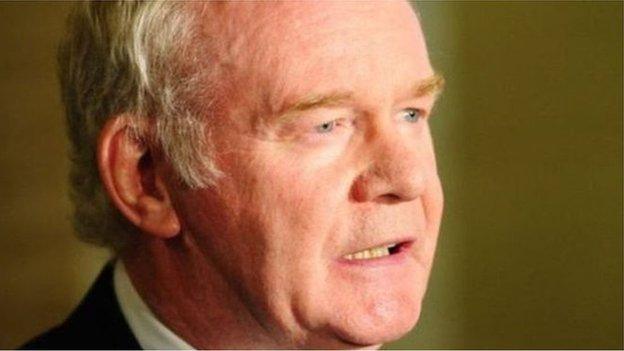
- Published21 March 2017
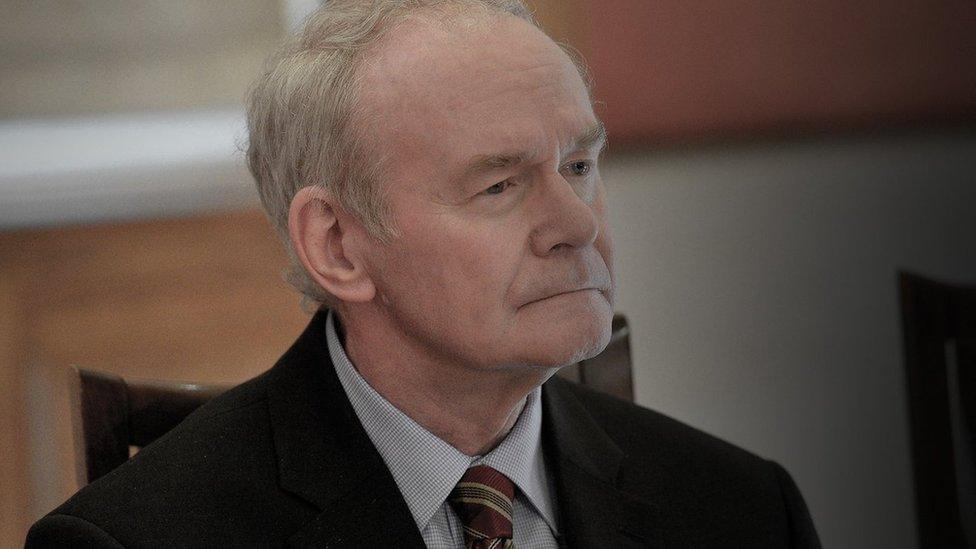
- Published21 March 2017
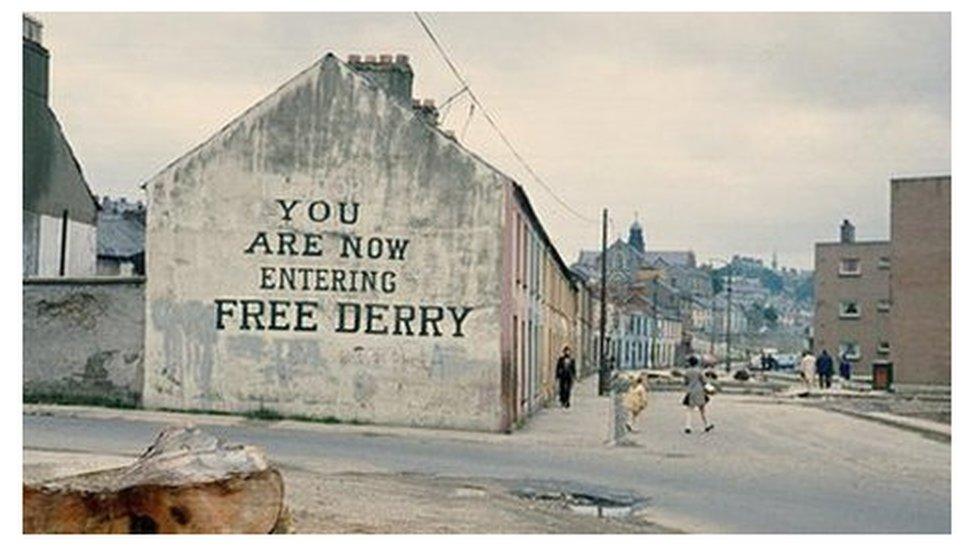
- Published21 March 2017
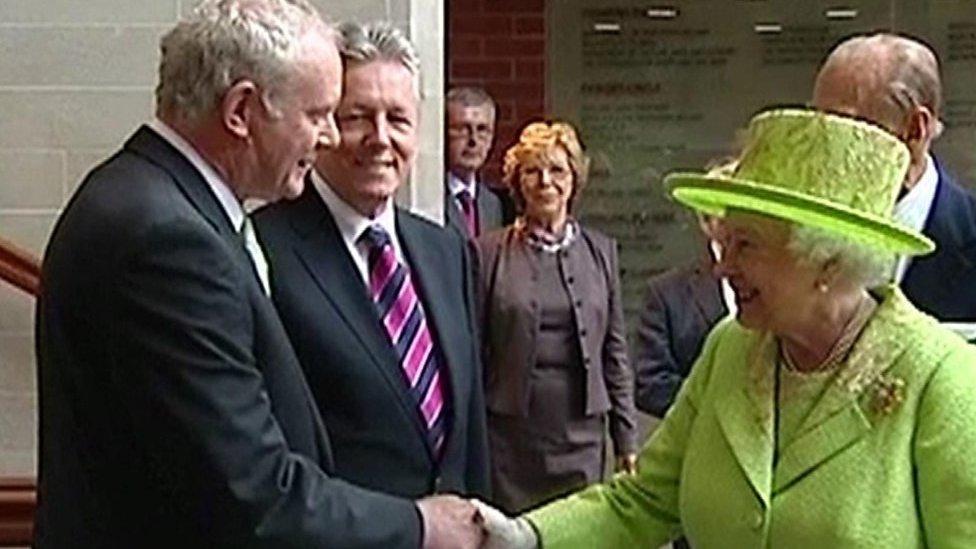
- Published21 March 2017

- Published21 March 2017
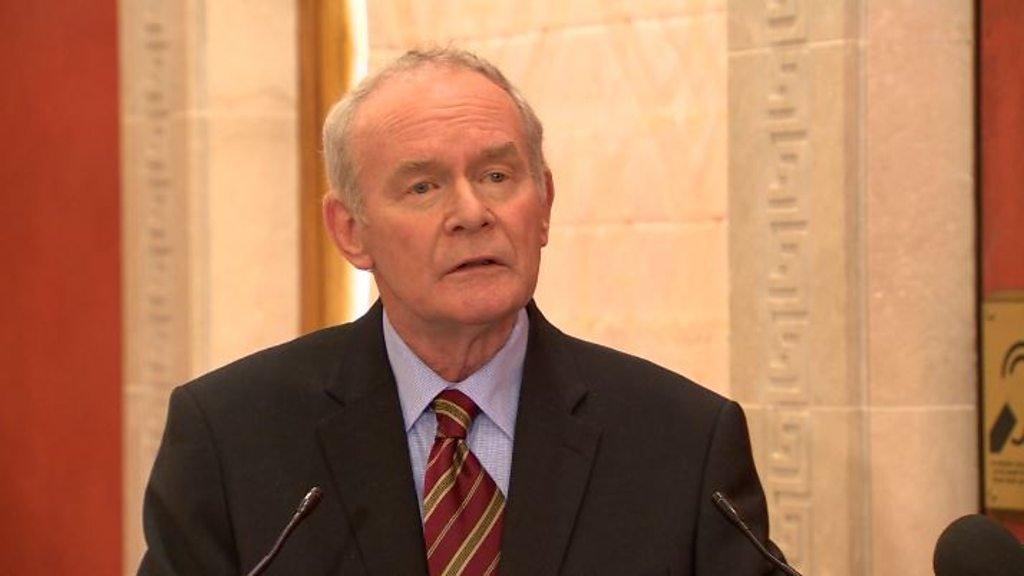
- Published21 March 2017
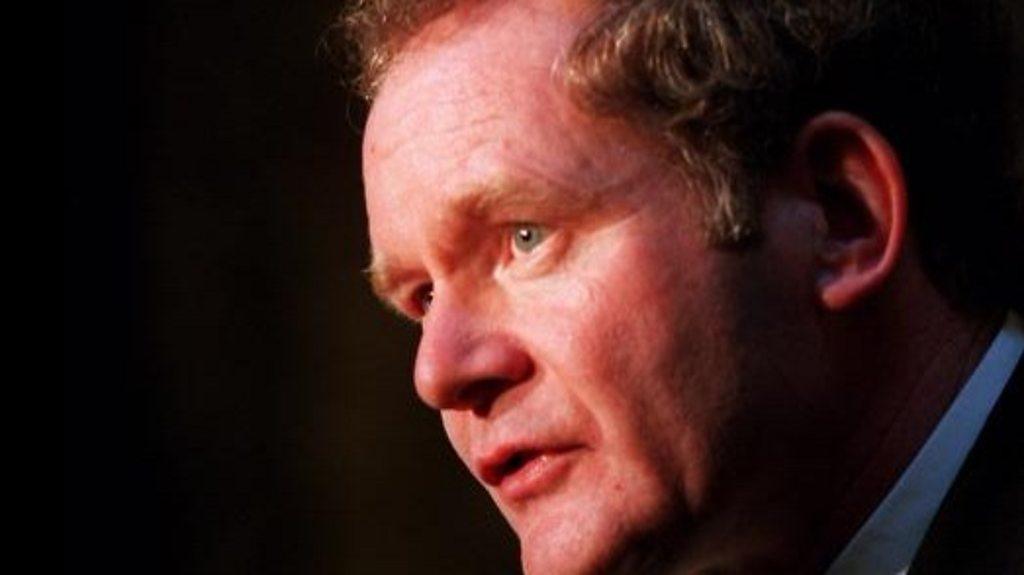
- Published21 March 2017
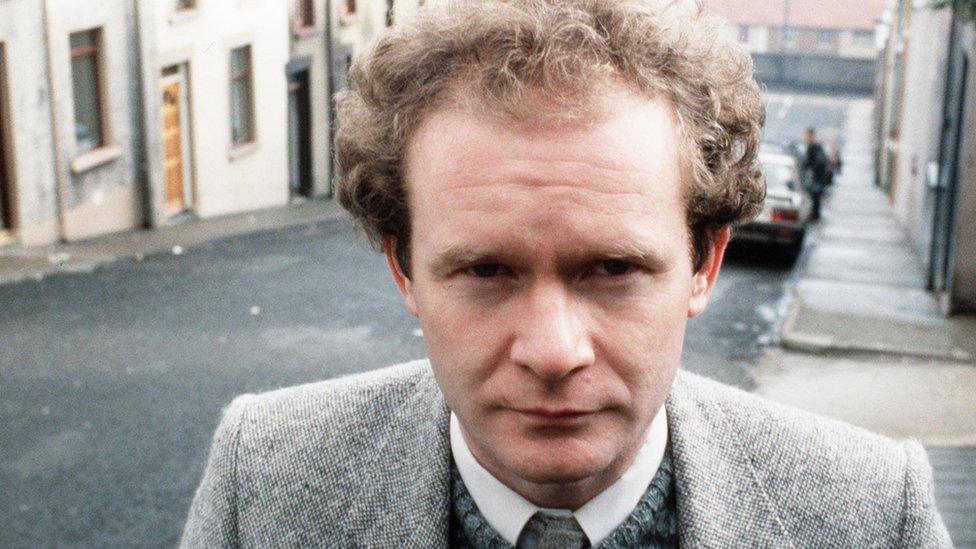
- Published21 March 2017
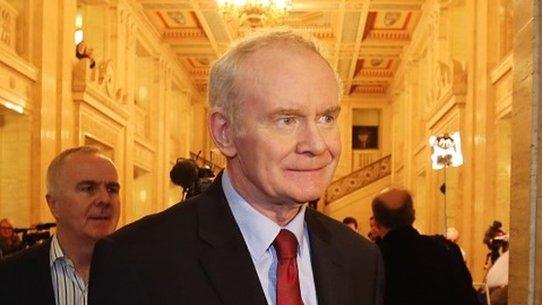
- Published20 January 2017
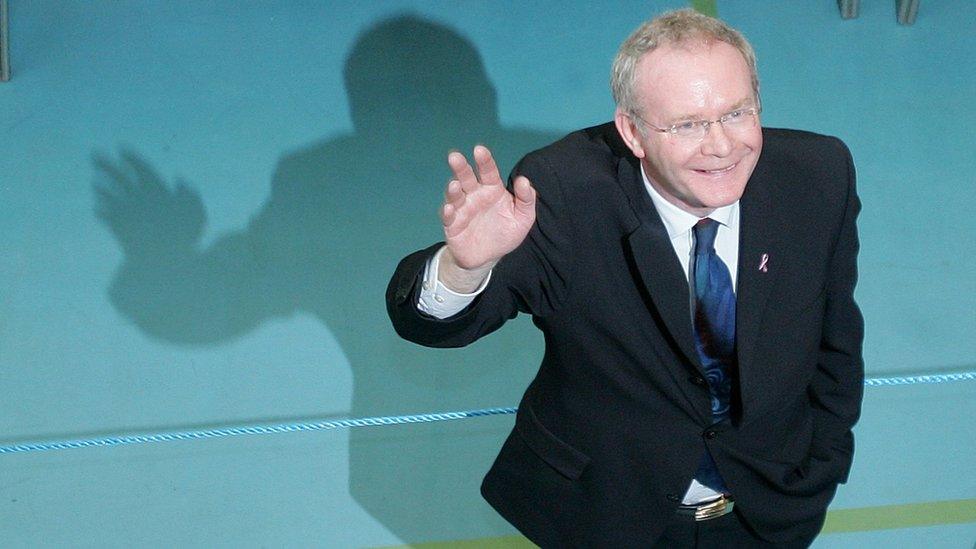
- Published27 June 2012
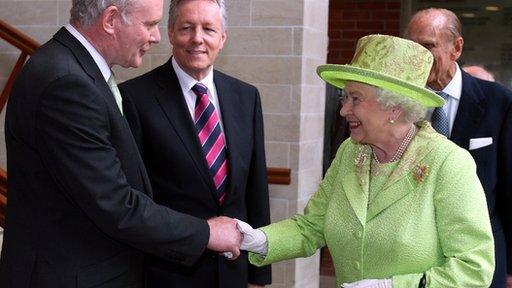
- Published7 March 2017
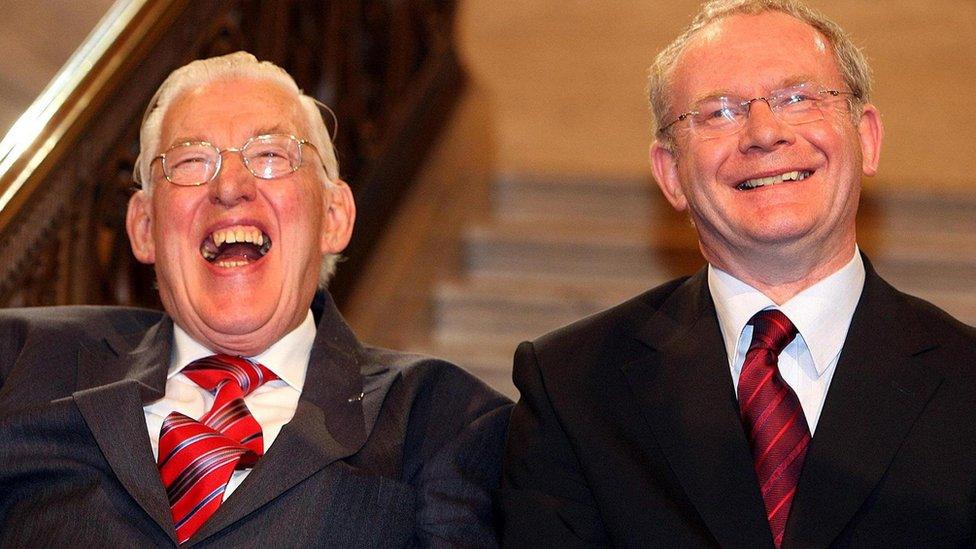
- Published22 June 2012
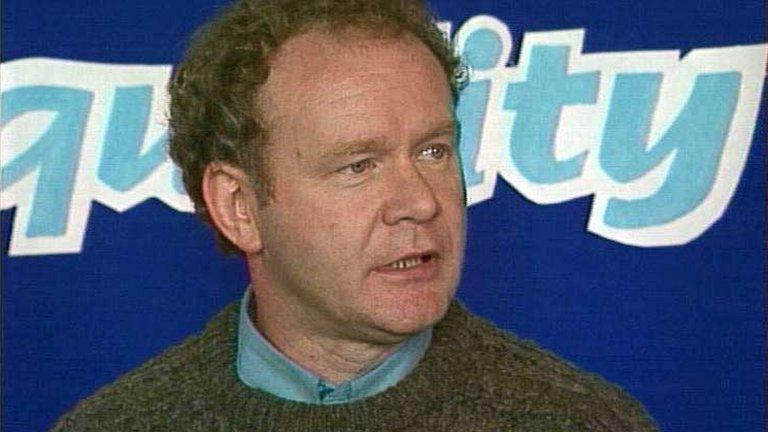
- Published26 September 2014
